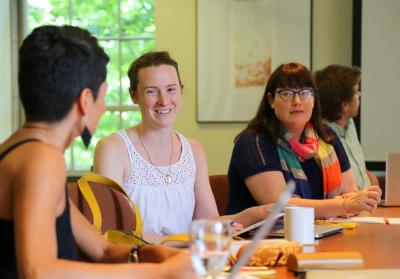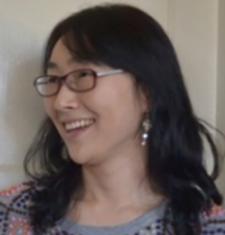Digital Humanities Summer Fellowships

The Simpson Center offers annual summer fellowships for faculty and doctoral students to pursue research projects that use digital technologies in innovative and intensive ways and/or explore the historical, social, aesthetic, and cross-cultural implications of digital cultures. The program has three primary goals:
- To animate knowledge—using rich media, dynamic databases, and visualization tools
- To circulate knowledge—among diverse publics
- To understand digital culture—historically, theoretically, aesthetically, and generatively
UW faculty and doctoral candidates are eligible to apply either on an individual basis or in teams for Digital Humanities Summer Fellowships every fall. Where research in the humanities is often undertaken by a single scholar, this program enables faculty and graduate students to collaborate with each other as well as with designers, information technologists, and librarians. Applications from scholars using the open-source multimodal authoring and publishing platforms are particularly encouraged; the Simpson Center is an affiliate of the Alliance for Networking Visual Culture. Review additional eligibility and application information for faculty and graduate students.
Up to 8 scholars—4 faculty and 4 doctoral students—will be selected each year; they will be required to be in residence for 6-8 weeks during the summer and will meet weekly to share their research. In addition to summer salary, each will have a research budget that can be used for expenses such as hourly support and software.
The Simpson Center gratefully acknowledges the support of a National Endowment for the Humanities Challenge Grant and the Andrew W. Mellon Foundation as well as many donors to the endowment which is underwriting these fellowships.
2024 - 2025 Digital Humanities Summer Fellows









2023 - 2024 Digital Humanities Summer Fellow

Melanie Walsh (she/her/hers)
When Postwar American Fiction Went Viral: Protest, Profit, and Popular Readers in the 21st Century
In my book, When Postwar American Fiction Went Viral: Protest, Profit, and Popular Readers in the 21st Century, I trace how postwar literary texts by writers like James Baldwin, Kurt Vonnegut, Sandra Cisneros, and Chris Kraus have been recirculated and reimagined by various internet communities and political movements, such as Black Lives Matter. By drawing on both humanistic and computational methods, both interviews and data, I narrate a new chapter in the history of reading spurred by the internet and social media.